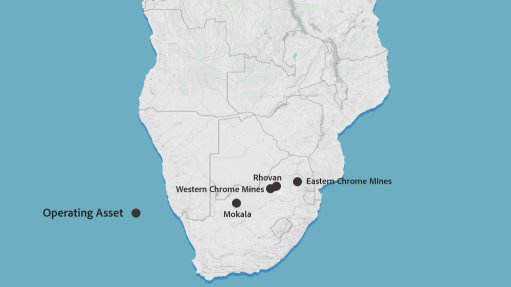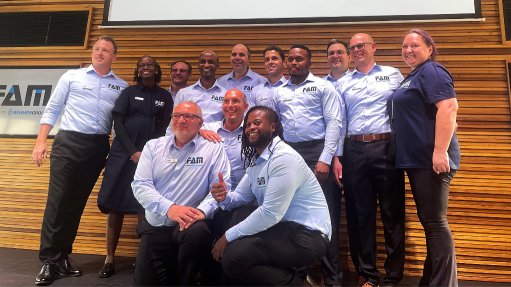Adoption stage for autonomous Bell ADTs
This article has been supplied.
Four years after commencing extensive testing, global ADT specialist, Bell Equipment, reports that autonomous technology is now at the adoption stage with more customers in the United Kingdom, South America, and Australia set to introduce autonomous Bell ADTs on their worksites during 2023.
“We’re extremely excited to have reached the adoption stage,” says Bell Equipment Product Manager, Brad Castle. “Right now we are working closely with one of our UK customers. They are a leading mobile plant supplier and earthmoving contractor that has a large existing fleet of Bell ADTs and is looking to initially install an autonomous system onto two B30Es for a quarry application. Initially, they will be introducing autonomous ADTs on two of its sites as part of a continuous drive to improve safety.
“At the same time, we have a mining customer in Australia who will be introducing five autonomous Bell ADTs later in the year. Both these customers have chosen xtonomy as their preferred guidance system.”
Brad explains: “Providing autonomous-ready machines will be a part of our core business in the future, but in terms of sensing and guidance systems we decided that it makes more sense to partner with market leaders and innovators, as we do with drivetrain, hydraulics, and electronics technologies in our trucks. Bell currently has two approved service providers, xtonomy based in Europe and Pronto AI in the United States, both of which can work with Bell customers from anywhere in the world.”
Xtonomy has had B30Es operating autonomously in the Alps since 2020. Pronto has established two test sites in the US, one at a Texas sand mine and another in Reno, Nevada, where three autonomously operated Bell B45Es and a Bell B50E are working in a quarry. In addition, they will soon be establishing a demo site in South America.
“As part of our strategy to enable interoperability between our ADTs and various control systems, so that customers have a choice of third-party suppliers, we have recently engaged with a third supplier and hope to begin testing this system later this year,” he adds.
The xtonomy and Pronto AI systems, although both autonomous, offer different benefits depending on a customer’s needs.
“Xtonomy has vast experience in the autonomous field with years of stable testing. It offers a complex radar-based system, which is less affected by inclement weather, but requires higher upfront costs and relies on the loading tool operator to manage the operation,” says Brad. However, the continuous site and object mapping, with minimal manual interaction, makes the system well-suited to multiple load and dump sites. In addition, the advanced in-cab display and supervision screens allow for easily integrated with other equipment on-site to provide a fully autonomous offering.
“Pronto AI, on the other hand, offers quick deployment with a much simpler, integrated system that has subscription-based pricing with minimal upfront costs,” says Brad. “Theirs is a camera system and the non-dynamic site and object detection require manual interactions. However, it is controlled by a user-friendly mobile app and routes can be easily changed by manually driving them. It is also possible to run this system over a private LTE network.”
Concludes Brad: “The beauty of both systems is the flexibility they offer our customers. Bell provides a standard cab with no extra hardware taking up space to create an environment where manual, remote or autonomous operation is interchangeable. This means that once an ADT has finished a contract on an autonomous site, the sensory and control system can easily be removed and the truck either fitted with a new system for another site or be used in a manual operation.”
Article Enquiry
Email Article
Save Article
Feedback
To advertise email advertising@creamermedia.co.za or click here
Press Office
Announcements
What's On
Subscribe to improve your user experience...
Option 1 (equivalent of R125 a month):
Receive a weekly copy of Creamer Media's Engineering News & Mining Weekly magazine
(print copy for those in South Africa and e-magazine for those outside of South Africa)
Receive daily email newsletters
Access to full search results
Access archive of magazine back copies
Access to Projects in Progress
Access to ONE Research Report of your choice in PDF format
Option 2 (equivalent of R375 a month):
All benefits from Option 1
PLUS
Access to Creamer Media's Research Channel Africa for ALL Research Reports, in PDF format, on various industrial and mining sectors
including Electricity; Water; Energy Transition; Hydrogen; Roads, Rail and Ports; Coal; Gold; Platinum; Battery Metals; etc.
Already a subscriber?
Forgotten your password?
Receive weekly copy of Creamer Media's Engineering News & Mining Weekly magazine (print copy for those in South Africa and e-magazine for those outside of South Africa)
➕
Recieve daily email newsletters
➕
Access to full search results
➕
Access archive of magazine back copies
➕
Access to Projects in Progress
➕
Access to ONE Research Report of your choice in PDF format
RESEARCH CHANNEL AFRICA
R4500 (equivalent of R375 a month)
SUBSCRIBEAll benefits from Option 1
➕
Access to Creamer Media's Research Channel Africa for ALL Research Reports on various industrial and mining sectors, in PDF format, including on:
Electricity
➕
Water
➕
Energy Transition
➕
Hydrogen
➕
Roads, Rail and Ports
➕
Coal
➕
Gold
➕
Platinum
➕
Battery Metals
➕
etc.
Receive all benefits from Option 1 or Option 2 delivered to numerous people at your company
➕
Multiple User names and Passwords for simultaneous log-ins
➕
Intranet integration access to all in your organisation


















